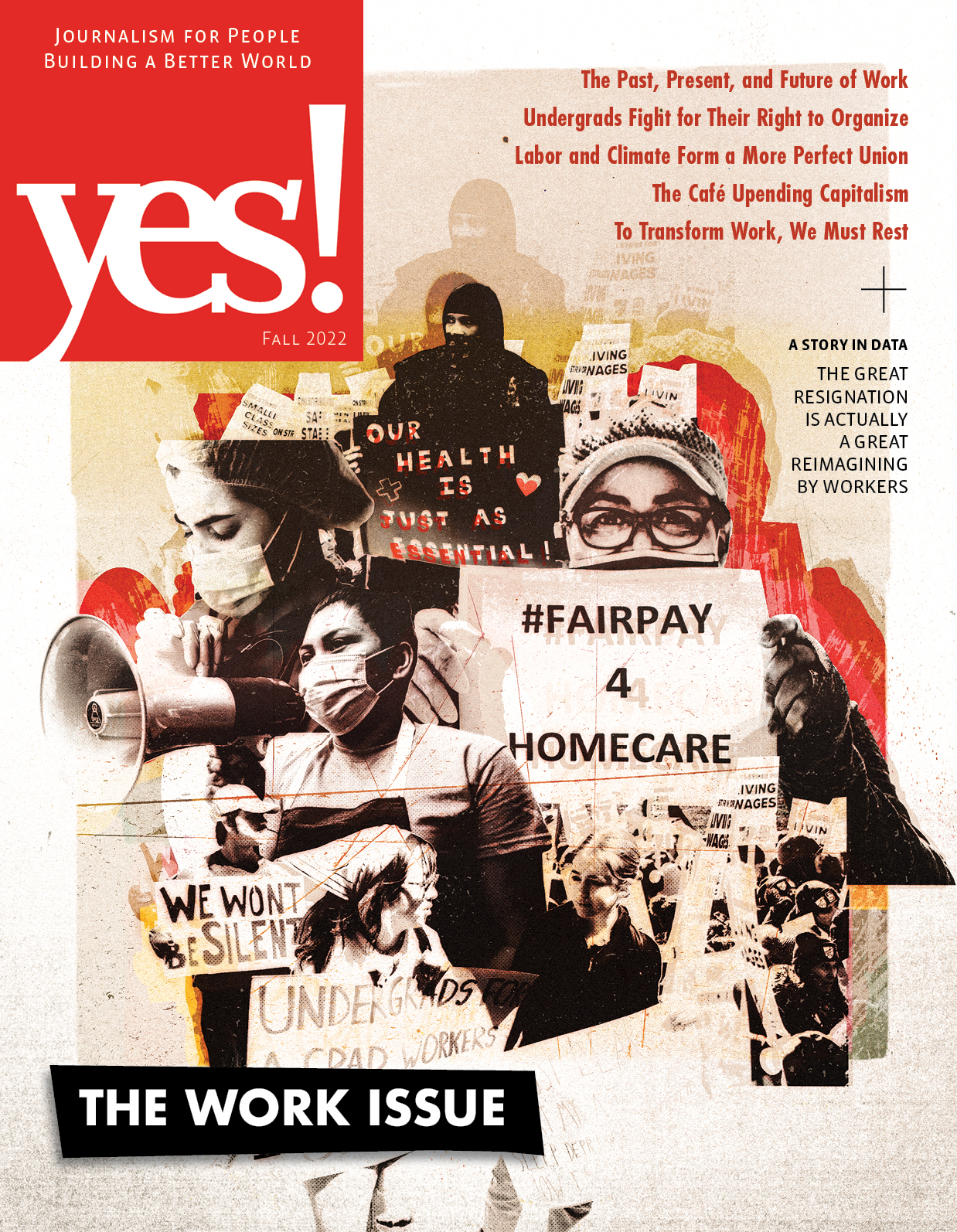
Money is one of the most uncomfortable topics to discuss for people of any age, and it’s not hard to understand why.
Personal finances, let alone international commerce systems, can be complex to comprehend and navigate. Wealth inequality is on the rise. Money can be an indicator of success and happiness—or not. We also know that there’s a lot of money out there and that a lot of people don’t have access to it.
In this “Let’s Talk About” collection, we attempt to expand your students’ perspective on money by shifting the discussion away from greed and fear. Instead, we examine public (not corporate) banks, happiness, charitable giving, divestment, and entrepreneurship as good-money paths that can lead to equity and improved lives.
You and your students can learn more about other opportunities to acquire wealth, capital, and good credit, especially for low-income Americans, in YES! Magazine’s The Good Money Issue.
How to Use This Collection
Suggested below are steps to a thoughtful and meaningful discussion with your students about money and its role in their personal lives and in society. Choose what is appropriate for your class.
1. Consult this article from Psychology Today on how to talk about money with your students.
2. Have students complete a pre-survey (optional).
3. Choose at least one YES! article and another site’s article for a robust compare and contrast.
4. Use the discussion questions—or craft your own—to gauge your students’ understanding and opinions.
5. Have students complete a post-survey (optional).
6. Explore curriculum if you’d like to dive deeper.
Reading Materials
YES! Articles
This Kind of Wealth Really Can Solve Our Problems
Standing Rock’s Surprising Legacy: A Push for Public Banks
How Funding Black Businesses Can Help Bridge the Racial Wealth Gap
Money Talks: How To Make Those Hard Conversations Easier
Infographic: Here’s Enough Money to Pay Off Millennials’ Student Debt
Outside Articles
Money Can’t Buy Happiness, But It Does Change How You Experience It (TIME Magazine)
The Green New Deal is Our Best Hope for Saving the Planet—and Ending Poverty (The Nation)
You Should Budget for Charitable Giving Even If You Aren’t Rich (Forbes)
Discussion Questions
1. How do you define wealth? Is having a lot of money the only way to be wealthy? What are things in your life that you value most—and how are they related to money?
2. As many of the articles stated, not everyone in society has the same opportunity or ability to achieve financial stability or success due to systems of oppression, like racism. What needs to happen to change this cycle and make wealth more attainable?
3. For you and your family, how much money is enough? And, conversely, how much money is too much? How does your family spend (and save) money?
Curriculum
From Resentment to Riches: The Keys to Transforming Your Relationship With Money (Conscious Lifestyle Magazine)


